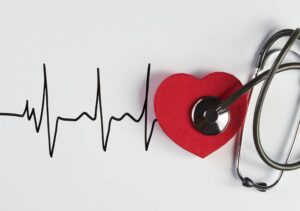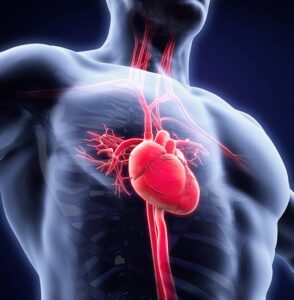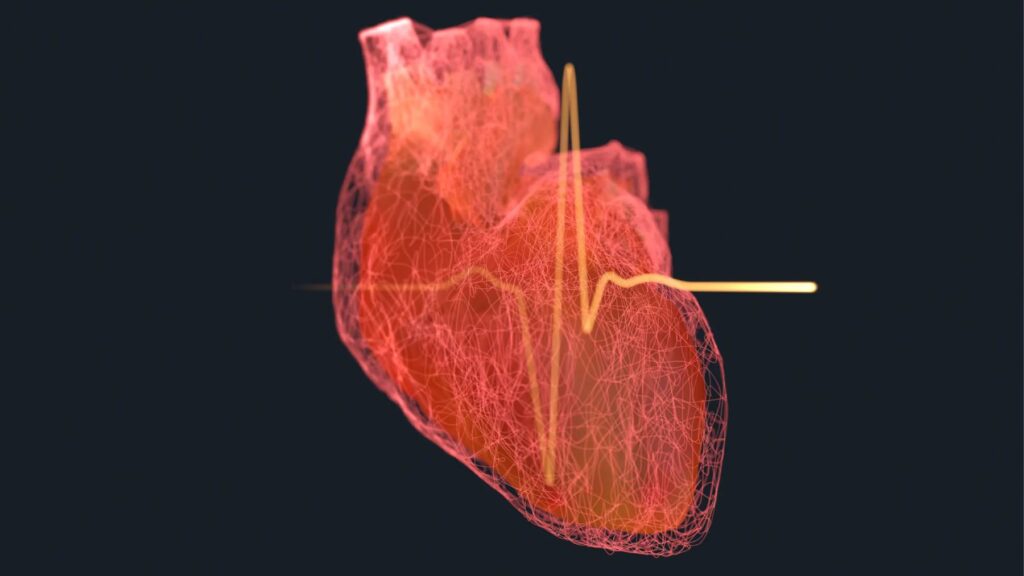Have you ever felt your heart racing unexpectedly or skipped a beat during a stressful moment? It can be unsettling and leave you wondering, “Is something wrong with my heart?” You’re not alone—irregular heartbeats are more common than you might think, affecting millions of people across the world. Whether it’s a slight flutter or a more serious rhythm issue, understanding why it happens and what you can do about it is crucial for your health.
In this blog, we’ll take a closer look at what causes irregular heartbeats, the warning signs to watch for, and the treatments that can help you get back to normal. So, if you’ve ever felt unsure about what’s going on with your heart, keep reading—your answers are just a few scrolls away!
Contents
What Causes an Irregular Heartbeat?
 An irregular heartbeat, or arrhythmia, can happen for a variety of reasons. Some causes are temporary, while others may indicate a more serious health condition. Here are some of the most common triggers:
An irregular heartbeat, or arrhythmia, can happen for a variety of reasons. Some causes are temporary, while others may indicate a more serious health condition. Here are some of the most common triggers:
-
Stress and Anxiety
In our fast-paced lives, stress is an inevitable part of daily living. When you’re under pressure, your body releases stress hormones like adrenaline, which can cause your heart to beat faster or in an irregular pattern. Anxiety and panic attacks can also lead to sudden heart rhythm changes, making you feel like your heart is racing or skipping beats. -
Excessive Alcohol Consumption
Drinking too much alcohol can interfere with your heart’s electrical system. Known as “holiday heart syndrome,” this condition often occurs after heavy drinking and can result in irregular heartbeats. Consuming alcohol in moderation is key to keeping your heart rhythm in check. -
Caffeine
Many people rely on a cup of coffee or tea to kickstart their day. While caffeine is fine in small doses, consuming too much can stimulate your heart and lead to irregular rhythms. It can also trigger palpitations, especially if you’re sensitive to caffeine. -
Underlying Medical Conditions
Certain health issues can directly affect the heart’s rhythm. For instance, heart disease can weaken the heart muscle or affect its electrical pathways, leading to arrhythmias. Other conditions like high blood pressure, thyroid problems, or diabetes can also increase the likelihood of experiencing an irregular heartbeat. -
Electrolyte Imbalances
Electrolytes are essential minerals in your body that help regulate heart function. An imbalance of these minerals—such as potassium, magnesium, or sodium—can disrupt the electrical signals in the heart, causing irregular rhythms. Dehydration, poor diet, or certain medications can lead to these imbalances. -
Lifestyle Habits and Age
Our lifestyle choices play a big role in our heart health. Poor diet, lack of physical activity, smoking, and obesity can all contribute to irregular heartbeats. As we age, the heart’s electrical system becomes more prone to changes, making older adults more susceptible to arrhythmias.
While most irregular heartbeats are not dangerous, identifying the cause can help in managing the condition. If you experience frequent or severe arrhythmias, it’s essential to consult a doctor for proper diagnosis and treatment.
Signs of an Irregular Heartbeat
 An irregular heartbeat can cause a variety of noticeable symptoms. Here are the key signs to watch out for:
An irregular heartbeat can cause a variety of noticeable symptoms. Here are the key signs to watch out for:
- Palpitations: A feeling of your heart pounding, fluttering, or racing.
- Dizziness or Lightheadedness: Feeling faint or unsteady, especially when standing up.
- Shortness of Breath: Difficulty breathing or feeling winded even with minimal activity.
- Chest Pain or Discomfort: Tightness or pain in the chest area, which may feel like pressure or a squeezing sensation.
- Fatigue: Unusual tiredness or lack of energy, even after adequate rest.
- Fainting or Near Fainting: Sudden loss of consciousness or the sensation of about to faint.
If you experience any of these symptoms, especially if they occur frequently or worsen over time, it’s important to seek medical attention to rule out any serious heart conditions.
Types of Heart Rhythm Problems
 Heart rhythm problems, or arrhythmias, can vary in their severity and impact on the heart’s function. Here are the main types:
Heart rhythm problems, or arrhythmias, can vary in their severity and impact on the heart’s function. Here are the main types:
-
Atrial Fibrillation (AFib)
This is the most common type of arrhythmia, where the heart’s upper chambers (atria) beat irregularly and rapidly. AFib can cause blood clots, leading to a higher risk of stroke, and may result in symptoms like palpitations, fatigue, and shortness of breath. -
Ventricular Tachycardia (VT)
In VT, the heart’s lower chambers (ventricles) beat too quickly, which can reduce the heart’s ability to pump blood effectively. This condition is serious and may cause dizziness, chest pain, or even fainting. -
Ventricular Fibrillation (VF)
A more dangerous type of arrhythmia, VF occurs when the ventricles quiver instead of contracting properly, causing the heart to stop pumping blood effectively. It can lead to sudden cardiac arrest if not treated immediately. -
Bradycardia
Bradycardia is when the heart beats too slowly (fewer than 60 beats per minute). This can cause fatigue, dizziness, and fainting. In some cases, bradycardia may require a pacemaker to regulate the heart’s rhythm. -
Tachycardia
This is when the heart beats too fast (over 100 beats per minute), which can cause palpitations, shortness of breath, and chest pain. It can occur in both the atria (atrial tachycardia) or the ventricles (ventricular tachycardia). -
Premature Heartbeats (PVCs and PACs)
These are extra heartbeats that occur before the regular heartbeat is due. Premature ventricular contractions (PVCs) and premature atrial contractions (PACs) are usually harmless but can cause palpitations or discomfort.
Each type of arrhythmia can affect the heart’s ability to pump blood effectively and lead to serious health complications. If you experience any symptoms of irregular heartbeats, it’s crucial to get a proper diagnosis to determine the right treatment.
Effective Treatments for Irregular Heartbeats

Treating an irregular heartbeat depends on its type, severity, and underlying cause. Here are some common treatment options:
-
Medications
-
Antiarrhythmic Drugs: These help control the heart’s rhythm and prevent arrhythmias from recurring.
-
Blood Thinners: In conditions like atrial fibrillation, blood thinners (anticoagulants) are prescribed to reduce the risk of blood clots and stroke.
-
Beta-blockers: These slow the heart rate and reduce the risk of complications in certain arrhythmias.
-
-
Cardioversion
This is a procedure used to reset the heart’s rhythm back to normal using either medication or a controlled electric shock. It’s commonly used for atrial fibrillation or flutter. -
Catheter Ablation
A minimally invasive procedure where a catheter is used to destroy the abnormal tissue in the heart that causes the irregular rhythm. It’s most effective for conditions like atrial fibrillation and certain types of tachycardia. -
Pacemaker
A small device implanted under the skin that helps regulate the heart’s rhythm. It’s often used for bradycardia (slow heart rate) and other rhythm issues that affect the heart’s ability to beat normally. -
Implantable Cardioverter Defibrillator (ICD)
An ICD is used for more serious arrhythmias like ventricular tachycardia or fibrillation. It monitors the heart and delivers shocks if a dangerous arrhythmia is detected, restoring the heart to a normal rhythm. -
Lifestyle Changes
Adopting a heart-healthy lifestyle can significantly reduce the frequency of irregular heartbeats. This includes:-
Reducing alcohol and caffeine intake
-
Managing stress
-
Eating a balanced diet
-
Exercising regularly
-
Avoiding smoking
-
-
Surgery
In severe cases, surgery may be needed to correct underlying structural problems in the heart that are causing arrhythmias. This can include procedures like the Maze procedure, which creates scar tissue in the heart to block abnormal electrical signals.
Each treatment plan is personalized, so it’s essential to consult with your healthcare provider to find the best solution for managing your arrhythmia.
Conclusion
If you’re experiencing any of the symptoms we’ve discussed, it’s essential to seek professional guidance. Ignoring these signs could lead to more serious heart conditions that may require immediate attention.
Are you worried about your heart health?
If you’re noticing irregularities in your heartbeat or just want to ensure your heart is in good shape, MantraDoc is here to help. Our team of expert cardiologists is ready to guide you with personalized advice and care—comfortably from your home.
Click the button below to connect with an online cardiologist and get the support you need to take care of your heart health.

